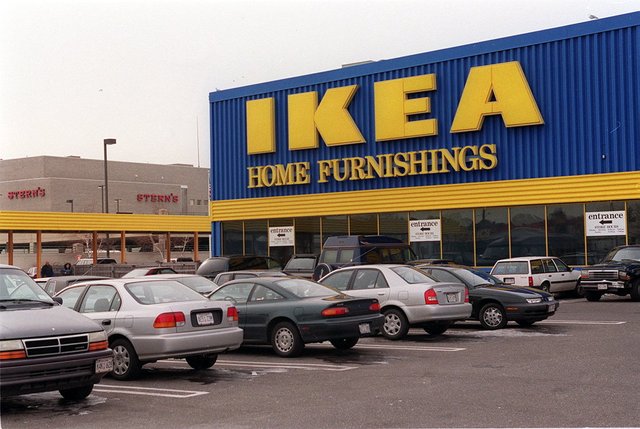
Ikea was indeed operated through a charitable trust in the Netherlands, and a complex series of
holding companies, all controlled by the Kamprad family to avoid any chance that Ikea might be taken public or broken up. It also provided tax shelters and a structure for preserving the company intact after Mr. Kamprad’s death.
He sought to control his work force, too. In 1976, he wrote a manifesto, “The Testament of a Furniture Dealer,” with biblical-style commandments listing simplicity as a virtue and waste as a sin. Employees were expected to absorb “the Ikea spirit,” to be humble, clean-cut and courteous, not just knowledgeable about Ikea’s products but enthusiastic about its corporate ideology — principles to work and live by.
Mr. Kamprad was, like his designer wares, a studied Everyman. He cultivated a provincial openness: curious about everything, but a face lost in the crowd. He was bespectacled and balding, with wisps of graying hair plastered down the sides, jowls and a pointed chin. His blue denim shirts and khaki pants might have been a gardener’s, but there was hard individuality in the dark eyes and compressed lips.
While he lived mostly in seclusion, he traveled to Ikea stores around the world, sometimes strolling in anonymously and questioning employees as if he were a customer, and customers as if he were a solicitous employee. He spoke at Ikea board meetings and occasionally lectured at universities. He rarely gave interviews, but made no secret of his alcoholism, saying he controlled it by drying out three times a year.
To millions of Ikea customers and the general public, he was largely unknown beyond the authorized version of his life and Ikea’s success — his “Leading by Design: The Ikea Story” (1999), written with Bertil Torekull. Its themes had been sounded for decades in Ikea publicity and reiterated in profiles of Mr. Kamprad and the company.
Ikea had been achieved, he said, by frugality: building stores on less costly land outside cities; buying materials at a discount; minimizing sales staff to let customers shop without pressure; putting no finishes on unseen furniture surfaces, and packaging items in flat boxes to be carried away by customers for home assembly (instructions provided).
Hi! I am a robot. I just upvoted you! I found similar content that readers might be interested in:
https://www.nytimes.com/2018/01/28/obituaries/ingvar-kamprad-dies.html
Downvoting a post can decrease pending rewards and make it less visible. Common reasons:
Submit
I don't understand how to mote earn this site. You can help me.
Downvoting a post can decrease pending rewards and make it less visible. Common reasons:
Submit